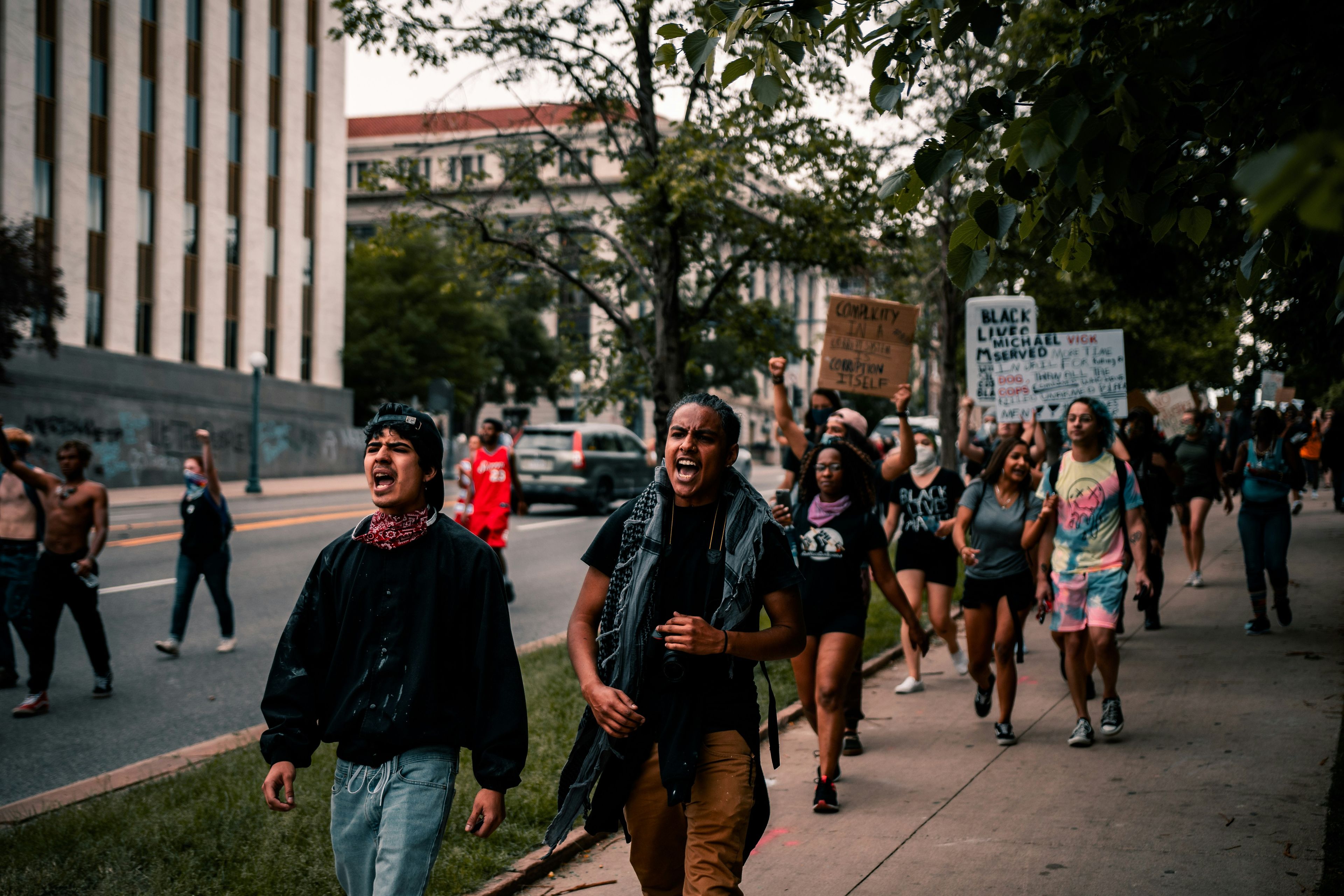
Navigating Political Disagreements Within Families: How to Protect Yourself and Preserve Relationships
The question of whether to maintain relationships with family members who hold vastly different political beliefs is more pertinent than ever.
After spending the last few days online and reflecting on the current state of American families, I realized this was bigger than just the election results. It’s about how the political discourse in this country has intensified over the past decade—and how it's impacting our relationships. So, today, I wanted to shift gears. We at Calling Home® need to offer more resources for those navigating differences in the wake of this election.
First, let me remind you of something I’ve said many times before: I believe that every adult has the right to maintain and end relationships with anyone they choose—whether that’s based on politics or any other issue. You don’t have to stay in a relationship if someone is treating you poorly, no matter the reason. And that’s what this article is about: giving you the tools and resources to make informed decisions about your relationships.
I’m seeing a lot of viral posts where people are cutting off family and friends after this election. Some of those relationships may have been strained for a long time, but others—where respect and tolerance existed—are suddenly being severed in moments of intense anger. And I get it. When we’re angry, we often make decisions without fully thinking them through. But I think it’s important to pause, reflect, and make sure we are not letting emotion override thoughtful decision-making.
Now, I don’t often share personal details about my own life online. I’m very private about my family. It’s something that’s important to me, and as a therapist, I’ve always preferred to work without heavily relying on my own experiences in my content. That’s how I’ve chosen to practice, and it’s worked for me. However, today, I feel it’s necessary to share a bit about my own family because I believe that my experience—and the conversations I’ve had with others—can help offer clarity on navigating these politically charged times.
I come from a very large, diverse family. It’s not a place where everyone believes the same thing, and it’s certainly not a family where political or social views align neatly. In fact, I have family members who hold the most liberal views possible and others who are deeply conservative. I have family members from different ethnic and cultural backgrounds, different religions, and from the LGBTQ+ community. I’ve had the experience of sitting down at the Thanksgiving table with people whose views I vehemently disagree with. I know they know how I feel, and I’m sure they don’t want to engage in a heated debate about it. And there are moments, honestly, when I’ve questioned my own sanity—sitting across from someone who holds beliefs that are in direct opposition to my values. And let me be clear: I’ve also had people in my family who simply can’t or won’t have these conversations because, to them, their very existence is being threatened by the way others vote or what they believe and I understand this.
I want you to know that, as a therapist, I am in a unique position to navigate these types of discussions. I’ve worked with clients who have done things that are extremely challenging to sit with—child abuse, drug trafficking, domestic violence. But, let me be real: when it’s your own family, it’s different.
I’m not asking any of you to tolerate toxic relationships under the guise of “it’s just politics.” If someone is insulting you, belittling you, telling you that you don’t deserve to exist, or demeaning your identity—whether politically or personally—no one should ever have to tolerate that.
But here’s the thing: There are people out there who can have respectful, meaningful conversations about politics, even when they disagree. It may not always be easy, but it’s possible if both parties are open and willing to listen. On the flip side, there are others who are so entrenched in their beliefs—emotionally immature or lacking the skills to engage in difficult conversations—that it becomes impossible to communicate without harm.

In today's polarized political climate, the question of whether to maintain relationships with family members who hold vastly different political beliefs is more pertinent than ever. Many of us find that our political views are often shaped by family dynamics, with political beliefs either serving to unite us or driving wedges between generations. But what happens when political differences strain those familial ties? Is it possible to hold space for opposing views while safeguarding your emotional well-being?
As we navigate these complex and emotionally charged conversations, it’s important to ask ourselves whether we can separate the person from their beliefs and if our relationships can endure without constant conflict. The truth is that there is no one-size-fits-all answer, but there are some essential considerations that can guide us toward the best decision for our own lives and mental health.
So today, I want to dive into what it means to navigate those differences, how to determine whether it’s worth trying to repair a relationship or whether it's time to set boundaries. This is not just about political beliefs; it’s about understanding when a relationship is worth saving, and when it’s time to protect your peace.
The Heart of the Conflict: Is It About Politics or Identity?
At the core of many family disagreements lies a more profound issue than political ideology: identity. Political beliefs are often intertwined with personal values, and for some, these beliefs are not just abstract concepts—they represent a fight for basic rights and recognition. As one individual in a recent conversation expressed, debates over political issues may not be debates at all when the stakes are this high. For some, certain political policies represent a fundamental threat to their right to exist, their safety, or their ability to live authentically.
In such cases, political debates are not just about differences in policy preferences—they're about deeply personal matters that touch on one’s identity, rights, and sense of belonging. For many, the question becomes: Can I continue to engage with someone who views me as less than, or who doesn’t believe I should have the same rights and freedoms as they do?
Can You Separate the Person From Their Beliefs?
When considering whether to maintain relationships with family members who hold conflicting political views, it’s crucial to assess whether the person and their beliefs are separate in your mind. If political disagreements are tied to values that you see as incompatible with your own identity or safety, you may feel unable to separate the person from their political views. However, if the relationship is built on shared memories, love, and understanding in other areas, it might be easier to tolerate these differences.
It’s also important to acknowledge that some people may change over time. One person shared a personal story about family members who, though initially strong supporters of opposing political views, eventually shifted their perspective through patient conversations. This change didn't happen overnight, but the individual decided to stay in the relationship, believing that meaningful discussions could eventually lead to greater understanding.
Emotional Toll: How Do These Conversations Make You Feel?
Another key consideration is how political conversations affect you emotionally. Do political disagreements make you feel angry, anxious, or disrespected? Do they leave you feeling drained or dehumanized? For many, the emotional toll of engaging with someone who holds harmful or dismissive views can outweigh the desire to keep the relationship intact.
Setting boundaries in these conversations is essential. Can you avoid political topics entirely, or does every discussion inevitably lead to conflict? If setting boundaries proves impossible, it might be time to reconsider how you engage with that family member. No one should feel obligated to endure toxic or emotionally harmful interactions for the sake of family unity.
The Consequences of Cutting Ties
Choosing to distance yourself from family members can be a difficult decision and one that often carries emotional consequences. It’s important to weigh the pros and cons of cutting ties with family members. For some, the relief of distancing themselves from constant conflict may far outweigh the cost of not having a relationship with those family members. For others, the emotional toll of severing ties could lead to long-term regret.
In some cases, family members may have behaved in ways that have caused harm or even trauma, and cutting ties may be necessary to protect your own mental health. For others, family connections might be worth maintaining despite differences in political views. The question becomes: Are the relationships worth the discomfort of disagreement?
The Privilege of Choosing
One factor that should always be considered is the privilege that comes with the ability to choose whether to maintain or sever family ties. For some, distancing themselves from family may not be a viable option due to financial, emotional, or social constraints. People who rely on family for support, whether due to disability, financial hardship, or other factors, may not have the luxury of cutting ties without facing significant consequences.
As we engage in these conversations, it’s vital to recognize that not everyone has the same opportunities to distance themselves from harmful relationships. Some people may be stuck in difficult situations, where they are forced to live with family members whose views and behaviors feel oppressive. This nuance should guide our discussions about political disagreements and family relationships, as we should be careful not to inadvertently alienate those who don’t have the same options for disengagement.
Finding Common Ground or Choosing to Walk Away
Ultimately, the decision to stay in or leave a relationship with a family member who holds different political beliefs is deeply personal. For some, finding common ground and navigating the discomfort of disagreement is worth the effort. For others, the emotional toll is too great, and the relationship may need to be redefined or even severed. There is no "right" answer in these situations, but what matters is making a decision that aligns with your values, emotional health, and capacity for enduring discomfort.
As we engage in difficult conversations and make choices about our relationships, it’s crucial to approach them with empathy, understanding, and a recognition that everyone’s threshold for discomfort and emotional pain is different. Family dynamics are complicated, and while politics plays a significant role in many of these conflicts, the ability to listen, empathize, and set boundaries is just as important.
In the end, whether you choose to distance yourself, engage in difficult conversations, or find a middle ground, the key is to do so with a clear understanding of what’s best for your emotional well-being. And, equally important, we must be compassionate with others who are navigating these challenges in ways that may differ from our own.